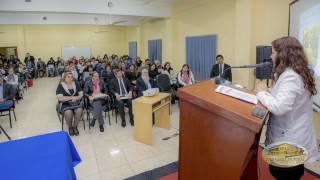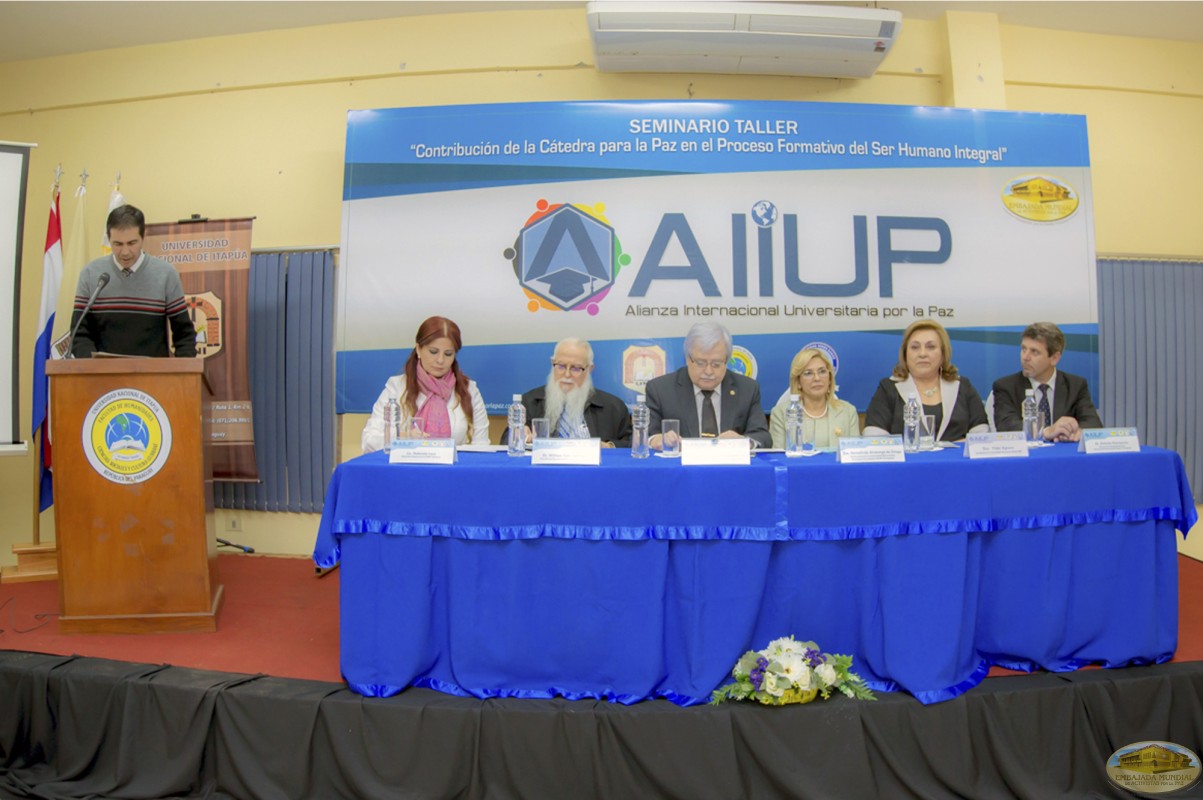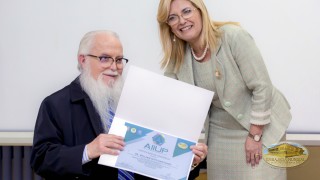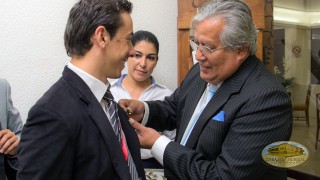At the First Seminar Workshop of the ALIUP, proposals were set to structure a Chair for Peace
The First Seminar Workshop was held at the facilities of the National University of Itapúa (UNI), the city of Encarnación-Paraguay with the topic “Contribution of the Chair for Peace in the formative process of the Integral Human Being.”
The event, held last April 26, aimed at structuring through the construction of contributions, a Chair for Peace, whose content and impact is to be evaluated with a view towards the integral formation of the human being; so it may sow, promote and strengthen a culture of peace in society.
The academic meeting was attended by outstanding educational institutions at the higher level, represented by rectors, vice-rectors, and deans of various disciplines; which marks the beginning of activities on the construction of the chair with one of the five strategic fields of action within the network; in this case, universities.
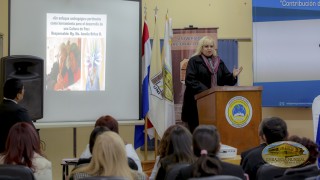
Integral education for the integral man
The members of the first panel opened the workshop and insisted on the desirability of joining forces and cooperating through a well-structured network to achieve, from Higher Education, the formation of professionals committed to working for society and the planet Earth.
“You will find in the University, in their academic community, strategic allies to carry forward the defense of human rights, to establish that peace and also to defend the rights of Mother Earth.” Prof. Hildegardo Gonzalez Irala, rector - President of the University Superior Council.
“We will have the opportunity to analyze and reflect on the contents that can be integrated as a discipline, the Chair for Peace, that are in favor of the respect for Human Rights and the respect for human dignity.” Dr. Hermelinda Alvarenga, Vice Rector, U. Nihon Gakko - pro tempore Secretary of the ALIUP.
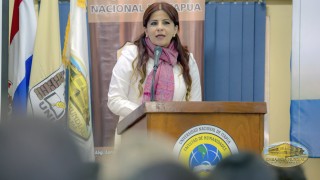
“It is very important that, from the different perspectives and careers, we can build that Chair, given the role of the University in the transformative process that we want to take now among youths and amongst society.” Gabriela Lara, Director General of the GEAP
The curricular design based on competencies recognizes the complexity of man and educates him for peace
In his dissertation, Dr. William Soto Santiago, quoting Plato, showed that even education from ancient Greece had as its central objective and purpose to integrally educate; thus, presenting the steps that constitute the basis of transformation towards a quality integral education. At the same time, he indicated the results that the Academic Session showed within CUMIPAZ-2015 and presented the eight units that constitute the thematic axes of the Chair for Peace.
“The university should reflect on its leadership, and identify the priorities in the formation of integral professionals, that respond to the challenges of Education according to the needs of the environment.”
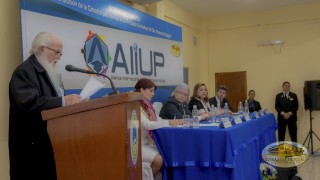
The four workshops that formed the Seminar were led by Dr. Nancy Oilda Benítez, MEC curriculum director; Dr. Antonio Kiernyezny Rovate, dean of the Faculty of Humanities, Social Sciences and Guarani Culture at UNI; Dr. Gloria María Abarca from Mexico, Ph.D. in International Peace Studies, Conflicts and Development of the UNESCO Chair; and Professor Maria Amelia Brito, academic director of Nihon Gakko University.
For Dr. Nancy Benitez, there are basic aspects that must be taken into consideration for the design of a curriculum by competence, which contains the Chair for Peace; and in that sense, proposes that the first thing is to define the social function to be developed by the student, trained in concepts, skills, and procedures for peace.
The workshop proposed by the UNI dean, centered on the question of what happened to the future in the production of knowledge in the different sciences and fields of knowledge, relying on the theory of the philosopher and sociologist Edgar Morin, to indicate that “there must be an education that guarantees relevant knowledge, because the mere transmission of knowledge does not ensure the relevance of it.”

For her part, Dr. Gloria Abarca pointed out that it is necessary to be clear about what peace is, to recognize oneself, to accept others and to cooperatively identify the solution to finding peace.
“Violence is a social phenomenon that has been built by needs that have not been heard. Therefore, peace is an answer that we must build.”
The closing of the workshops was led by Dr. María Brito, who focused her presentation on Andragogy Techniques, basically consisting of teaching tools to educate adults; in this way, she considers that the whole population would know and educate themselves for peace. She also invited teachers to unlearn obsolete teaching and education practices.
